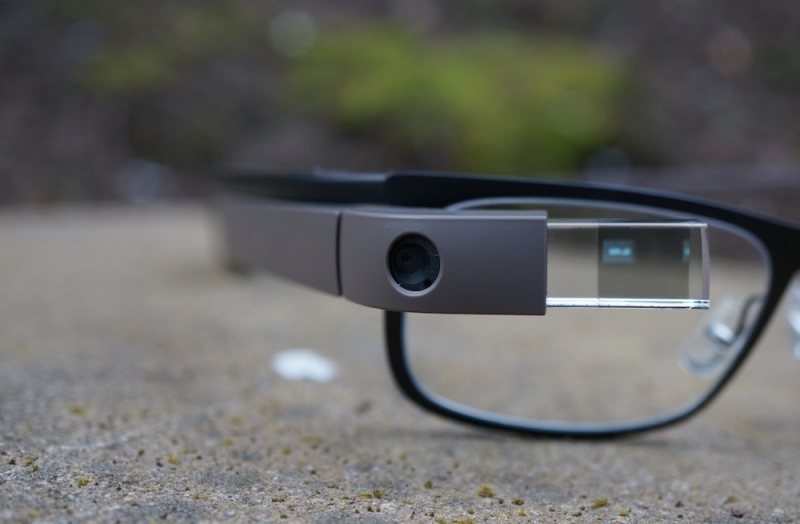
Google essentially went back to the drawing board early this year with Glass. The experimental project gained quite a bit of traction in the tech community before privacy concerns all but derailed its momentum.
A revised version of Google Glass is currently being developed and overseen by Nest chief Tony Fadell. We were told a few months ago that the new version would be out soon and just last week, a mysterious device that could very well be the new wearable passed through the FCC.
9to5Google has been hot on the trail and has managed to gather a wealth of new information on what’s being called the Enterprise Edition, or EE, of Google Glass.
The new eyewear is said to feature a larger prism that’s powered by a beefier Intel Atom processor. The larger prism will help reduce eye strain and presumably allow for a wider field of view. Intel’s chip, meanwhile, will offer improved performance and is more energy efficient, resulting in slightly better battery life. Overall heat management has been improved as well.
Even with the Atom chip, battery life is still a concern for all-day use. To help solve this issue, Google has apparently developed external battery packs that extend the life of Glass throughout the day. The Enterprise Edition will also have 802.11 a/b/g/n/ac dual-band Wi-Fi, just as the recent FCC filing referenced.
The big takeaway is that Google appears to be repositioning Glass for the workplace. Diverting attention away from public settings effectively eliminates privacy concerns and is a smart move on Google’s part. It allows them to continue to develop Glass without the nasty stigma associated with the Explorer Edition.
It’s possible that a consumer model could arrive at a later date but Google would still need to solve the privacy dilemma before that happens.
https://www.techspot.com/news/61301-google-solves-privacy-dilemma-derailed-glass.html